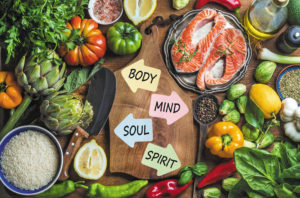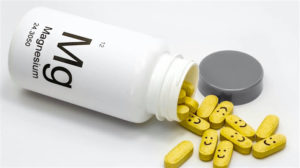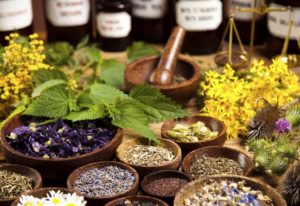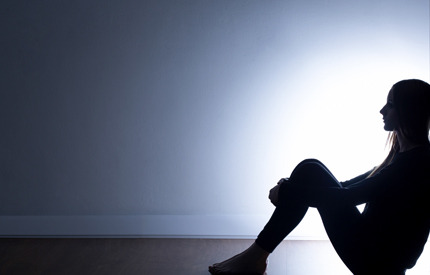What is Depression?

Depression is a condition that affects over 300 million people. It includes feelings of helplessness, worthlessness, and hopelessness. While some people have depression when they are going through a life change or a life struggle, many people deal with depression every day. Even if things are going okay or good in their lives, they cannot shake that feeling of sadness. It affects their daily activities.
The usual treatment for depression is anti-depressants. While you cannot deny that antidepressants work, is it always worth the risk of the side effects?
Common side effects of anti-depressants are:
- Nausea
- Fatigue
- Insomnia
- Constipation
- Dizziness
A Natural Approach to Treating Depression
If you don’t believe that an anti-depressant is for you, there are natural ways to combat the symptoms of depression. By incorporating one or more of these approaches, you may be able to lessen, or completely rid yourself of your depression. While these approaches can help you combat your depression, you should always be discussing your depression with either a doctor, psychologist, or a naturopathic doctor, incase symptoms worsen. Some people do have depression that is extremely debilitating and they may require anti-depressants.
Exercise for Depression

When dealing with depression, you may find it extremely hard to get up and do simple tasks. So, I can guarantee that exercise sounds like the least exciting task, but it can be extremely beneficial for your depression. When I say exercise, by the way, I mean walking, jogging, dancing, etc. You do not have to start lifting weights and body building to reap the benefits of exercise. Find what exercise is right for you, and try to at least get in a 20-minute session a day. During exercise, your body releases your “feel good hormones”: dopamine and serotonin. To get the best results, after finding what works for you, continue doing these exercises, as stopping your exercises when you feel as though you are feeling better will be detrimental to all of the work you did.
Meditation for Depression

Meditation is helpful because it is all about awareness. It is completely shutting out the world and focusing on training your mind on how to deal with our emotions and our negative thoughts and create an inner balance.
There are different types of meditation. No matter what type of meditation, the general idea is to sit or lie comfortably, close your eyes, breathe naturally, and focus on your breath.
In a blog by Keri Wiginton, she discusses her struggle with depression and how meditation not only helped her with her depression, but also got her off of her anti-depressants. When her anti-depressants were not working as much as they could have, she decided to try out the Headspace App. Headspace is an app which offers courses, meditations, and exercises that help you to control your thoughts. It also offers a “Sleep by Headspace”, which eases the mind to get a good night’s sleep.
Diet Changes for Depression

Ever hear the saying “we are what we eat”? As delicious as they are, fast food and fried foods are not going to help you feel good and drinks loaded with sugar are not going to help you feel better. A better diet can definitely help you get some control over your depression.
Foods that are good for you and your mind are:
- Apricots
- Broccoli
- Carrots
- Peaches
- Pumpkin
- Kiwi
- Strawberries
- Oranges
Protein also help to make serotonin, which we discussed earlier, is a “feel good hormone”. Foods that contain proteins are:
- Turkey
- Tuna
- Chicken
- Peas
- Fish
- Milk
- Yogurt
Magnesium

Magnesium is crucial for serotonin production. When you are stressed or eating/drinking unhealthily, it lessens the amount of magnesium in your body. Almonds, pumpkin seeds, cashews, and dark chocolate all contain magnesium. If you are not getting enough from your diet, or stress is depleting it, you can take magnesium over the counter. You should be taking between 248-450 mg of magnesium a day to help improve symptoms of depression.
Homeopathic Medicine

Homeopathy uses homeopathic medicines that are made from different natural sources that are safe, effective treatments. When you take regular medications, they come with unwanted side effects. With homeopathic medications, these come with no side effects. It is the idea of “supporting the symptoms” and healing the issue at hand. These are also helpful because anyone can use them. Whereas regular medications, you have to be careful because of other medications, it can affect pregnancy, and it can affect a child through breastfeeding, homeopathic medications do not share those risks. It is completely safe for anyone to take and there have been no negative drug interactions.
References:
McCarty, M. Naturopathic Considerations for Treating Depression. The American Association of Naturopathic Physicians.
Born, T. 2013. Naturopathic Treatment Strategies for Depression. Born Naturopathic Associates, INC.
Vanzanden, C. 2017. A Naturopath’s Perspective on Depression. Endeavour College of Natural Health.
Mitton, K. 2016. A Naturopathic Doctor’s Approach to Depression. Goodness Me! Blog.
Rankin, L. 2011. 11 Natural Treatments for Depression: An MD’s Tips for Skipping the Prozac. Psychology Today.
Borchard, T. 2015. 9 Steps to Treat Depression Naturally. Everyday Health.
Freedenberg, R. 2009. Natural Depression Remedies. Natural Medicine Journal.
Wong, C. 2019. 8 Natural Depression Remedies to Consider. Very Well Health.
Weil, A. Natural Depression Treatment. Weil.
A Personal Story about Yoga and Depression. EkhartYoga.
Wiginton, K. 2018. Nothing Worked for My Depression – Until I Tried Meditation. The Washington Post.
Deans, E. 2018. Magnesium for Depression. Psychology Today.
Meditation Definition: What is Meditation? Take Charge of the Mind. Mindworks.
Morin, A. 2018. Depression Statistics Everyone Should Know. Very Well Mind.
What is Homeopathy? National Center for Homeopathy.
Berkheiser, K. 2018. Magnesium Dosage: How Much Should You Take per Day? Healthline.

